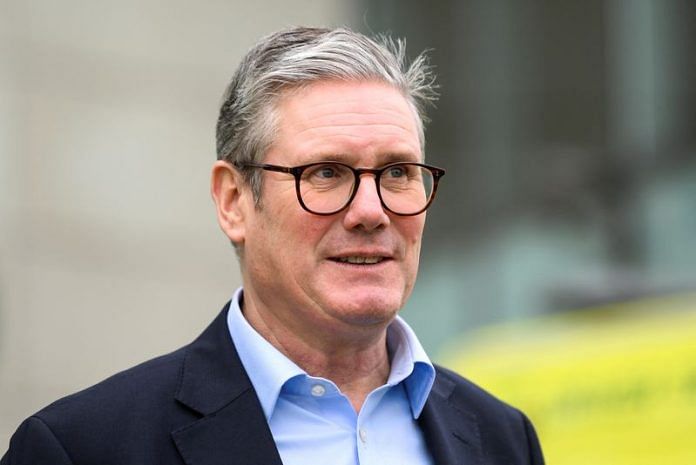By Alistair Smout and Catarina Demony
LONDON (Reuters) – Britain will not bring the issue of reparations for historical transatlantic slavery to the table at a meeting of Commonwealth nations that began in Samoa on Monday, but is open to engage with leaders who want to discuss it.
Leaders and officials from 56 countries with roots in Britain’s former empire will attend this week the Commonwealth Heads of Government Meeting (CHOGM) in the Pacific Island nation.
Consecutive British governments have rejected calls for reparations but the chairman of the Caribbean Community (CARICOM) reparations commission, Hilary Beckles, told Reuters there were hopes this stance might change under the new Labour administration after 14 years of Conservative rule.
Both British Prime Minister Keir Starmer and King Charles will attend the Samoa meeting.
But a spokesperson for Starmer reiterated on Monday that reparations were not on his agenda.
“We do not pay reparations,” the spokesperson said. “The position on an apology remains the same. We won’t be offering an apology at CHOGM.”
Although reparations are not on Starmer’s “formal” Commonwealth agenda, his spokesperson said they would “continue to engage with partners on these issues”.
A source familiar with the matter at Caricom, which groups 15 member states such as Jamaica and Barbados, told Reuters CHOGM presented an important opportunity for dialogue on reparations and said the region would raise the issue there.
Trinidad and Tobago Prime Minister Keith Rowley said in July a decision had been made by CARICOM to “very forcefully” speak on reparations in Samoa.
All three candidates running to be the next secretary-general of the Commonwealth support reparations.
CARICOM has a reparations plan, which is not solely focused on hefty financial payments. Among other measures, it urges European countries to formally apologise and demands support for educational programmes.
The idea of reparations for slavery is long-standing but has been gaining momentum worldwide. Opponents say countries shouldn’t be held responsible for historical wrongs, while proponents say the legacy of slavery has resulted in persistent and vast racial inequalities today.
(Reporting by Catarina Demony and Alistair Smout; editing by Mark Heinrich)
Disclaimer: This report is auto generated from the Reuters news service. ThePrint holds no responsibilty for its content.



